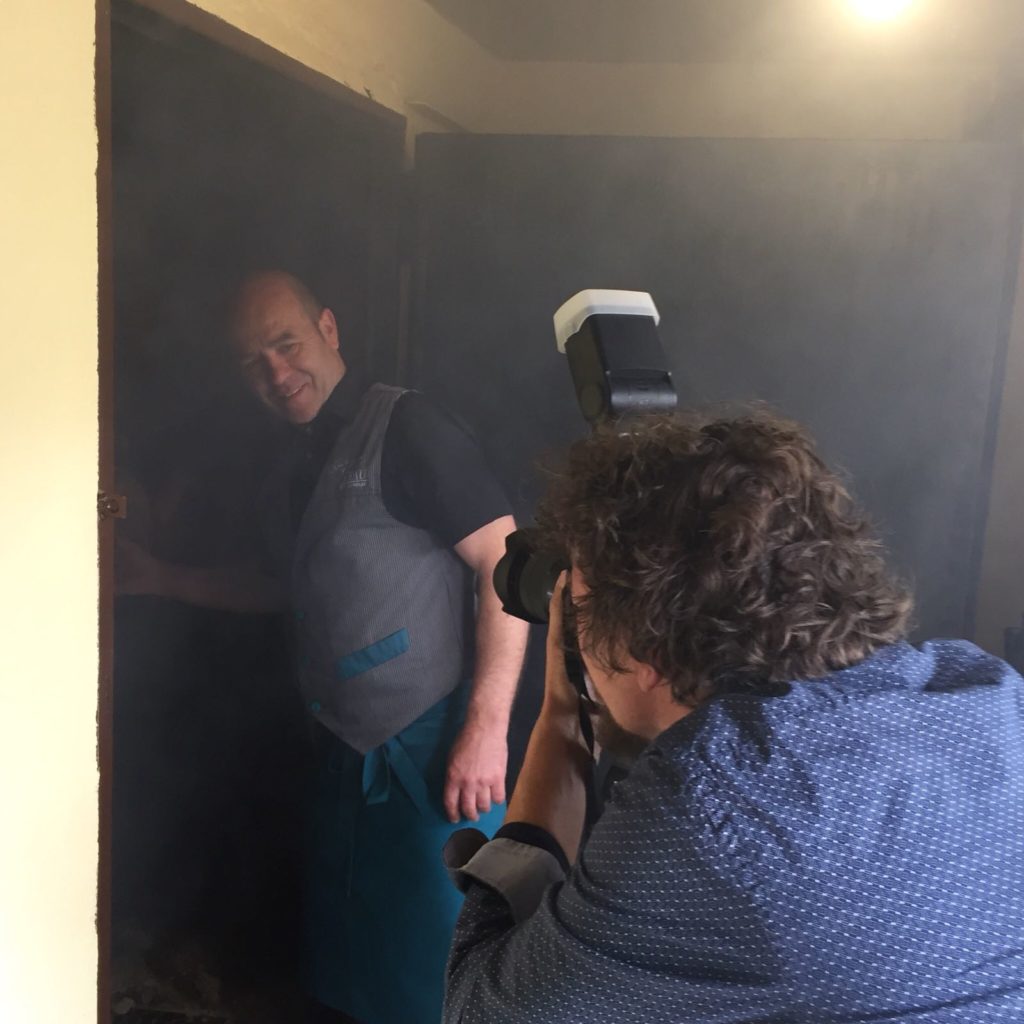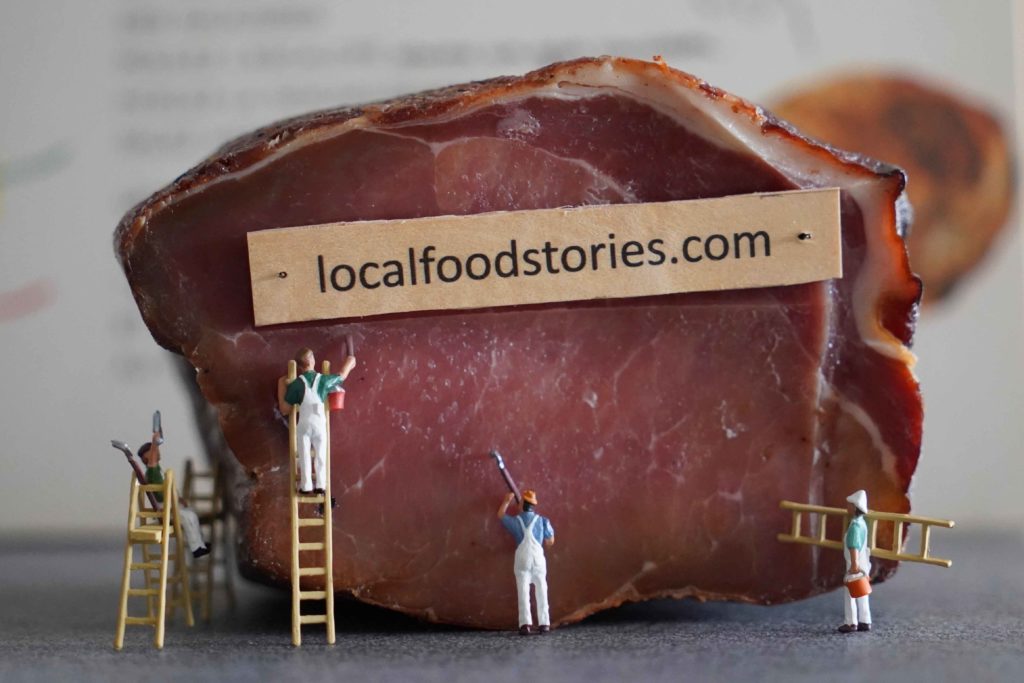Scandalously tasty
Pfau Räucherspezialitäten GmbH
#coldmeats #germany #smokedham
For a moment Frank Pfau is completely submerged in smoke. A few seconds later he reappears and can be seen pinching the ham hanging in the smoking chamber. ‘I check their consistency every day,’ explains Frank. During the smoking phase the pieces of meat lose up to 30 per cent of their water content. This loss of liquid and smoking of the cured ham allows it not only to be kept longer, but also it builds the basis for the incomparable taste. While Frank proceeds with his daily check he explains the difference between how smoked ham is produced using traditional homemade methods compared to those used in industrial production.
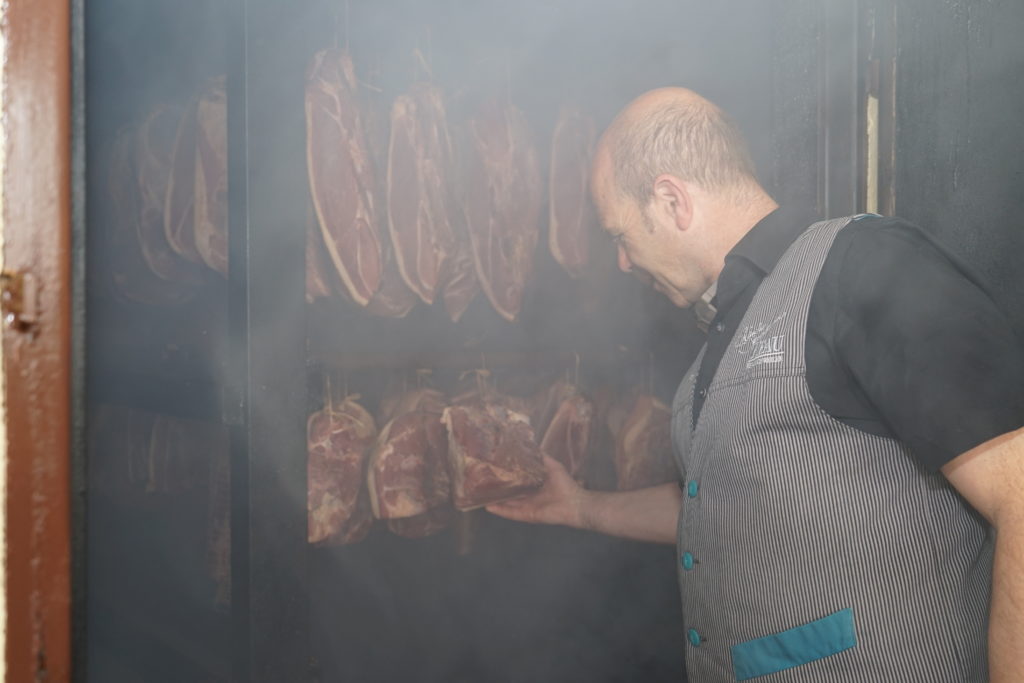
Stress free transportation
The difference begins already with the same basic product – the pig. ‘In large industrial production everything is about time and amount,’ explains the smoking specialist. This is why industries process animals which are on average three months old and weigh about 100 kg. This detail differs greatly to the Pfau smoking specialists. ‘We buy our animals at the age of six to seven months and when they have a living weight of 150 kg,’ says Frank. This is because the older and heavier the animal, the meat is tastier and has a more appealing colour. In order to maintain this quality indicator slaughtering needs to be relatively stress free. ‘We avoid long transportation routes and have our animals slaughtered in local slaughterhouses,’ says Frank. Contrary to large industries which buy 90 per cent of their pigs from neighbouring Poland.
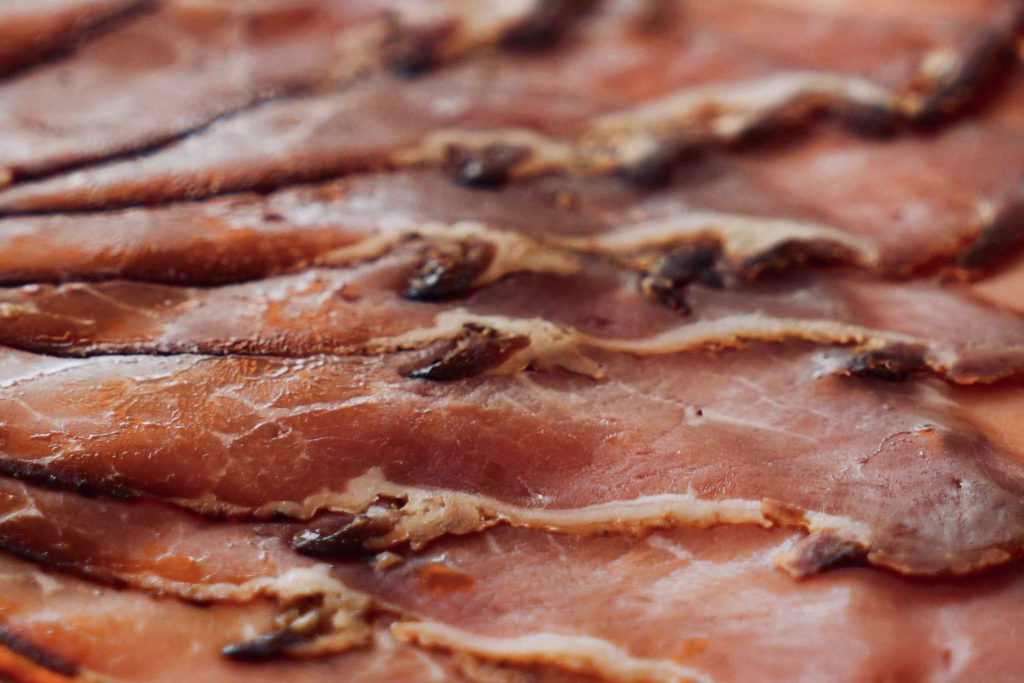
Artisanal skills
After slaughtering the ham is seasoned and salted. Here too an impressive difference takes place between the traditional and industrial methods. Mass produced smoked ham is cured with the help of modern technology in just two days. At Pfau this step takes six weeks. During this time the pieces of ham are placed in a marinade of salt and spices. ‘This step is important for the flavour,’ explains Frank. Only fresh spices come into question for him. ‘Every Saturday we crush our natural ingredients like for example coriander, pepper, laurel and juniper,’ says Frank proudly. Artificial seasonings and flavourings play no role here.
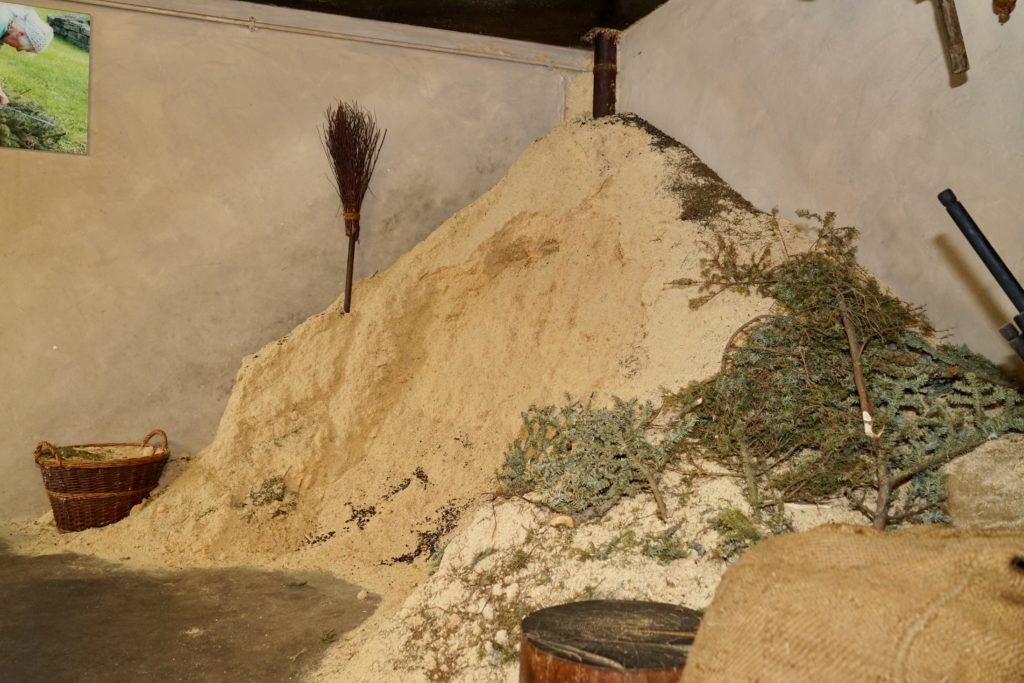
The next step of processing is draft smoking which takes about two weeks. Smoking processes in the Black Forest use neither beech nor oak, but ‘The shavings of fir, spruce, juniper twigs and in winter dried pine needles,’ says Frank.The Black Forest farmers have been drying pine needles for generations as heating fuel reserves for winters which often bring meter high snow covers in this region of the South of Germany. The needles dry throughout the year in lofts of well aired barns. By doing so they remain green and do not rot as well as expel the distinguished flavour during the smoking process.
A broad and loyal customer base
Frank Pfau protects the knowledge which was passed on to him from generation to generation like gold dust.His father, Erich Pfau, was a house butcher who went from farm to farm mainly in autumn and winter. In the meantime his wife, Brunhild, ran a small guest house where they served their homemade sausages and ham to guests who liking the Pfau’s family recipe so much would place orders after their departure. This led to Pfaus already providing a mail order service during the 1960s. Today this is still an important income source for the Pfau smoking specialities. However, the main sales for this family business is generated through their shop. Set in the middle of the village, Herzogsweiler, and run by Frank’s wife, Birgit. ‘Many of our customers come from the region of Stuttgart and even the French region of the Alsace,’ tells Birgit Pfau. A further clientele comes from the gastronomical field. Several prize winning restaurants in Germany use the family’s sausage and meat products.
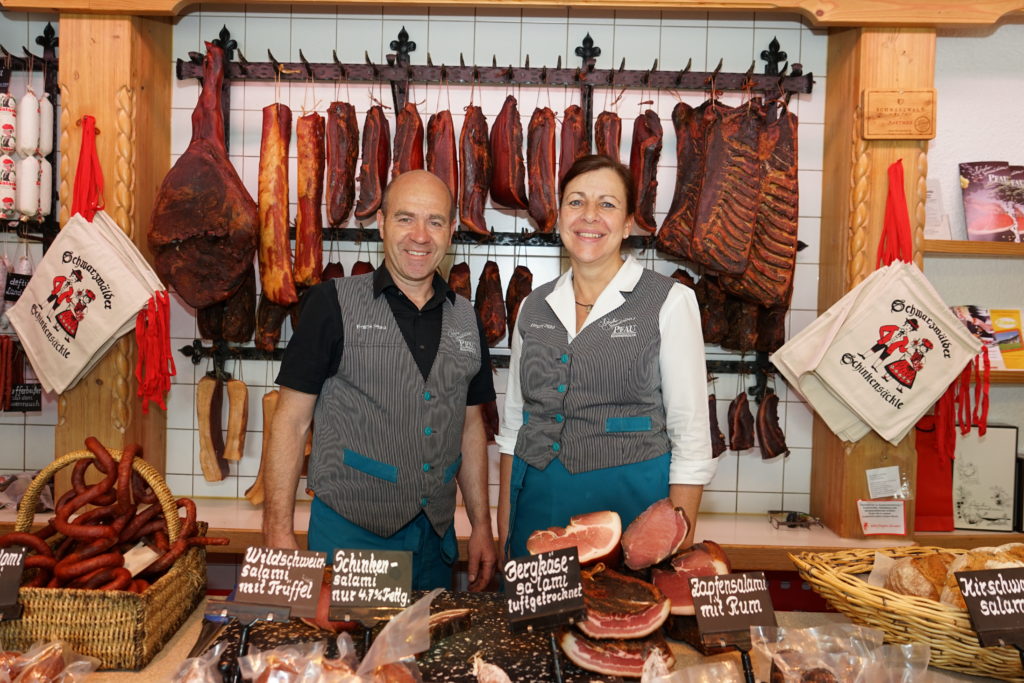
Small, compact and always at the centre of things
In order to maintain such a broad customer base the Pfaus came up with a clever idea.They have extended their product line to include for example an exclusive schnapps salami and a wild boar salami containing just 4.7% fat. A lot of their products have won prizes at both national and international levels. Their flagship product called `Pfau’s Edelräucherschinken aus dem Schwarzwald’ or translated into English as Pfau’s fine smoked ham from the Black Forest, still remains their gold medal winner.
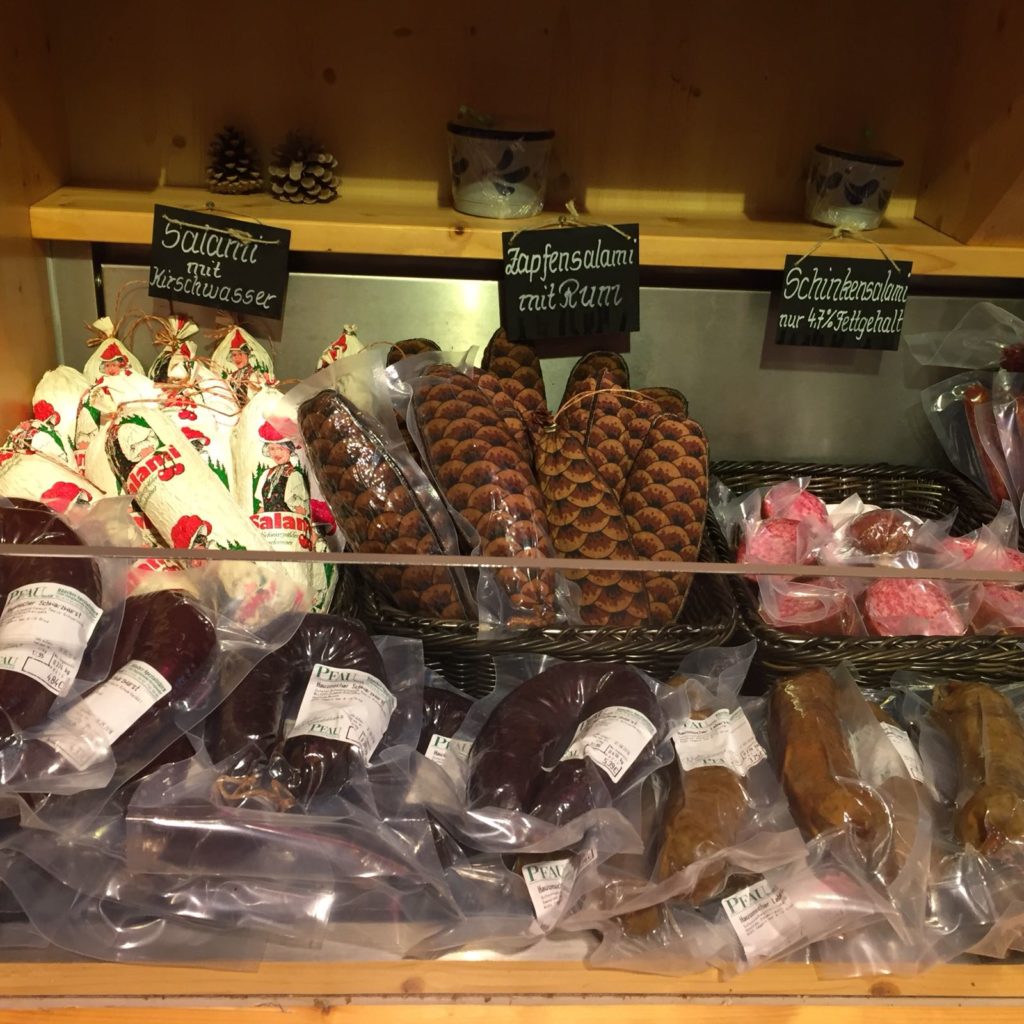
With so much success comes the question what is the future of the business? Expansion or not? For Pfau it is clear, ‘We will remain small and compact because if you become too big you are unable to be actively involved on the production side of things or in the shop front dealing with customers. This leads to not noticing quickly enough when something isn’t working,’ explains Frank. Luckily the chances are high that one of the family’s sons will step into the business and continue their artisan making of Black Forest ham products and the slow food philosophy.
